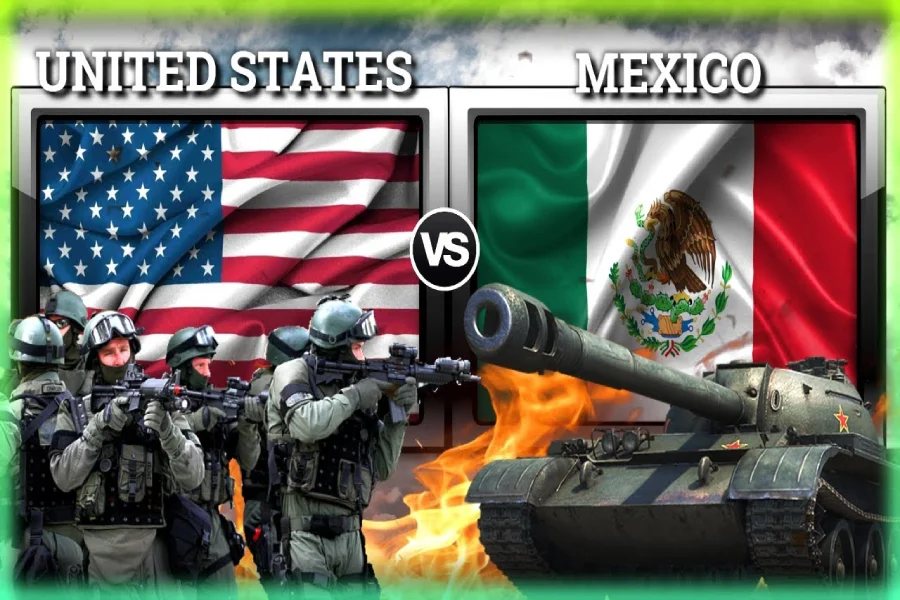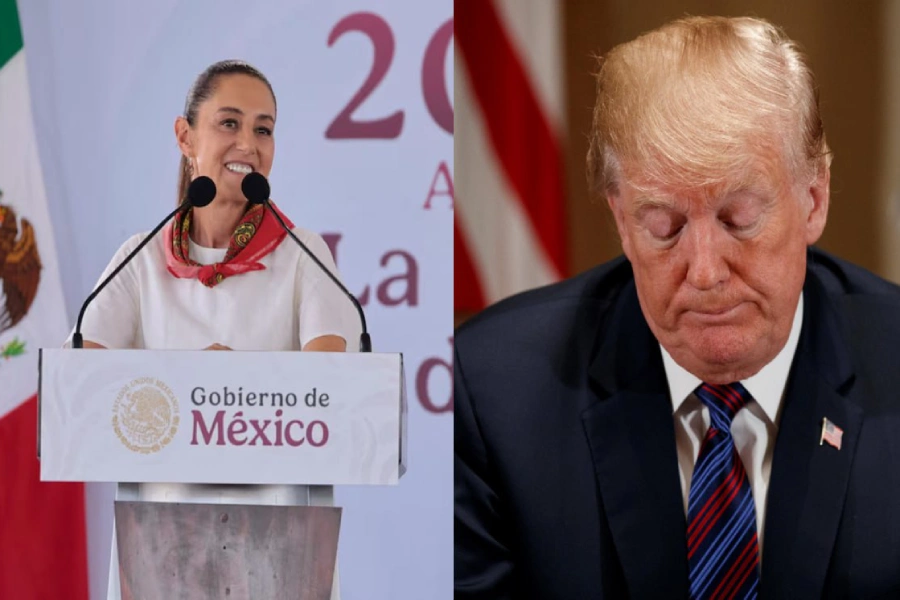The issue of sovereignty has become a central theme in the ongoing diplomatic tensions between the United States and Mexico over the fight against drug cartels. Recently, former U.S. President Donald Trump proposed the idea of sending American troops to Mexico to help combat the growing drug trade, particularly the smuggling of fentanyl into the U.S. However, Mexico’s President, Claudia Sheinbaum, rejected this suggestion, citing the importance of national sovereignty. In this article, we will examine the legal and constitutional aspects of sovereignty and the international law surrounding military interventions.

What is Sovereignty in International Law?
Sovereignty refers to a state’s absolute authority and control over its territory and the freedom from external interference. In modern international law, sovereignty is a fundamental principle that ensures each state’s independence. It is protected under the United Nations Charter, which prohibits military intervention in a country’s affairs unless explicitly authorized by the UN or with the country’s consent.
The Westphalian model of sovereignty, established in 1648, reinforces the concept that a state has supreme authority within its borders. This principle was further codified in the Montevideo Convention (1933), which requires a state to have a permanent population, a defined territory, a government, and the capacity to engage in foreign relations.
The U.S.-Mexico Tensions: A Clash Over Sovereignty
In a tense conversation in April 2025, former President Trump suggested deploying U.S. forces to Mexico to assist in the battle against Mexican drug cartels that produce fentanyl, a major contributor to the opioid crisis in the U.S. However, President Sheinbaum was quick to reject this proposal, emphasizing that Mexico would not tolerate any infringement on its sovereignty.
Her response echoed Mexico’s long-standing stance on foreign military presence: “The territory cannot be violated. Sovereignty cannot be sold. Sovereignty is cherished and defended,” she asserted. This position aligns with Mexico’s constitutional provisions and its commitment to maintaining control over its internal affairs.

The Legal Boundaries of Military Intervention
Under international law, the use of military force is heavily regulated. Article 2(4) of the United Nations Charter prohibits states from using force against the territorial integrity or political independence of any state. However, there are limited exceptions:
-
Self-Defense (Article 51): A state has the right to use force if it is attacked.
-
UN Security Council Authorization: The Security Council can authorize military intervention if it deems it necessary to maintain international peace and security.
-
Consent of the Host State: A country can allow foreign military assistance within its territory, provided there is explicit consent.
In the case of the U.S.-Mexico situation, none of these exceptions apply. There has been no armed attack by the U.S. on Mexico, the UN Security Council has not authorized intervention, and Mexico has firmly rejected foreign military presence. As a result, any unilateral military action by the U.S. would violate international law and Mexico’s sovereignty.
Self-Defense and Its Limitations
While some U.S. officials argue that the activities of Mexican drug cartels, particularly their role in fentanyl trafficking, could justify military action under Article 51 of the UN Charter, this interpretation is legally contentious. Self-defense under international law requires that the threat be imminent and that the response be proportionate.
The International Law Commission (ILC) has stated that self-defense can only be invoked when there is an armed attack against a state, which is not the case with drug cartels. While cartels may cause significant harm, this harm does not meet the threshold required to justify military intervention under international law.
The Journal of International Law & Politics further highlights that drug trafficking, while a grave issue, is not categorized as an act of war or an armed attack. Therefore, invoking self-defense in this context would be a stretch of the legal framework (djilp.org).
Mexico’s Legal Perspective on Foreign Military Presence
Mexico’s Constitution places strict limitations on foreign military intervention. Article 89 of the Mexican Constitution defines the principles guiding Mexico’s foreign relations, emphasizing non-intervention and peaceful coexistence with other states. Any foreign military presence within Mexico requires explicit consent from the government, and this has traditionally been reserved for exceptional situations.
The Mexican Supreme Court has upheld this constitutional principle, noting that military operations within Mexican borders must be authorized by the Mexican government. Moreover, the presence of foreign military forces is only permissible if it aligns with national laws and international obligations.
President Sheinbaum’s firm stance against U.S. military intervention reflects this legal framework and her administration’s commitment to respecting Mexico’s sovereignty.

The Role of International Cooperation in Combating Drug Cartels
Although unilateral military intervention is legally problematic, international cooperation remains a viable option. The U.S. and Mexico have collaborated in various ways to combat drug cartels, including intelligence sharing, joint law enforcement efforts, and coordinated actions to dismantle trafficking networks.
One such example is the use of drone surveillance over Mexican territory, which was authorized by Sheinbaum’s government to track the locations of fentanyl production labs. These measures allow for effective cooperation without violating Mexico’s sovereignty.
While both nations have different approaches to addressing drug cartels, cooperation on the basis of shared intelligence and resources can provide a legal and effective means of tackling the issue.

